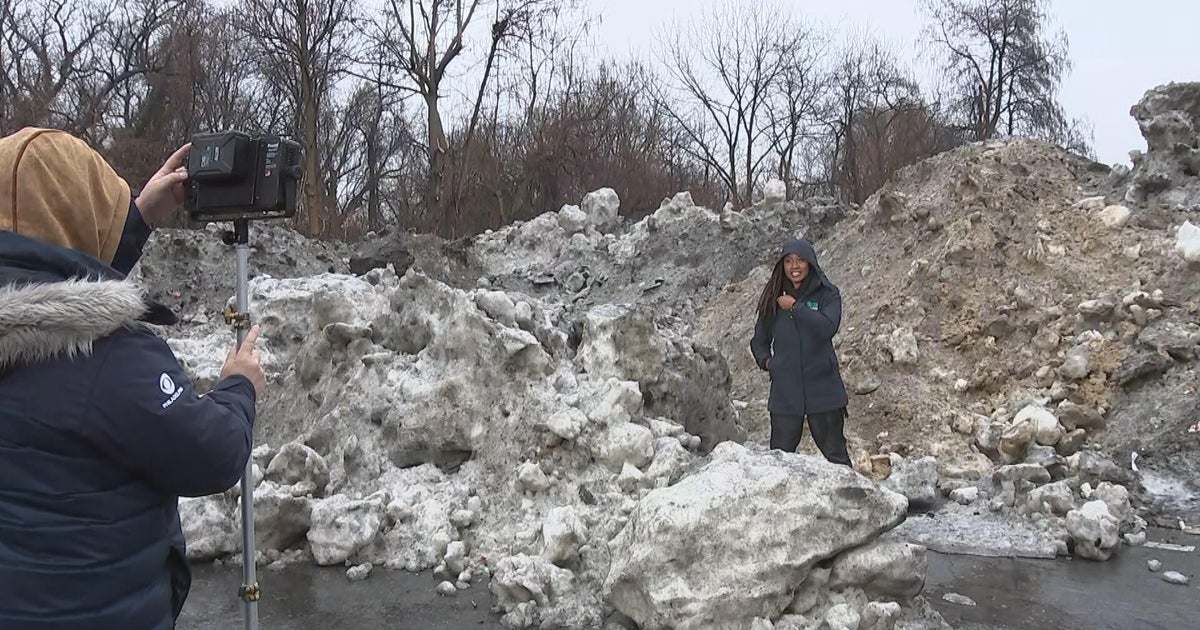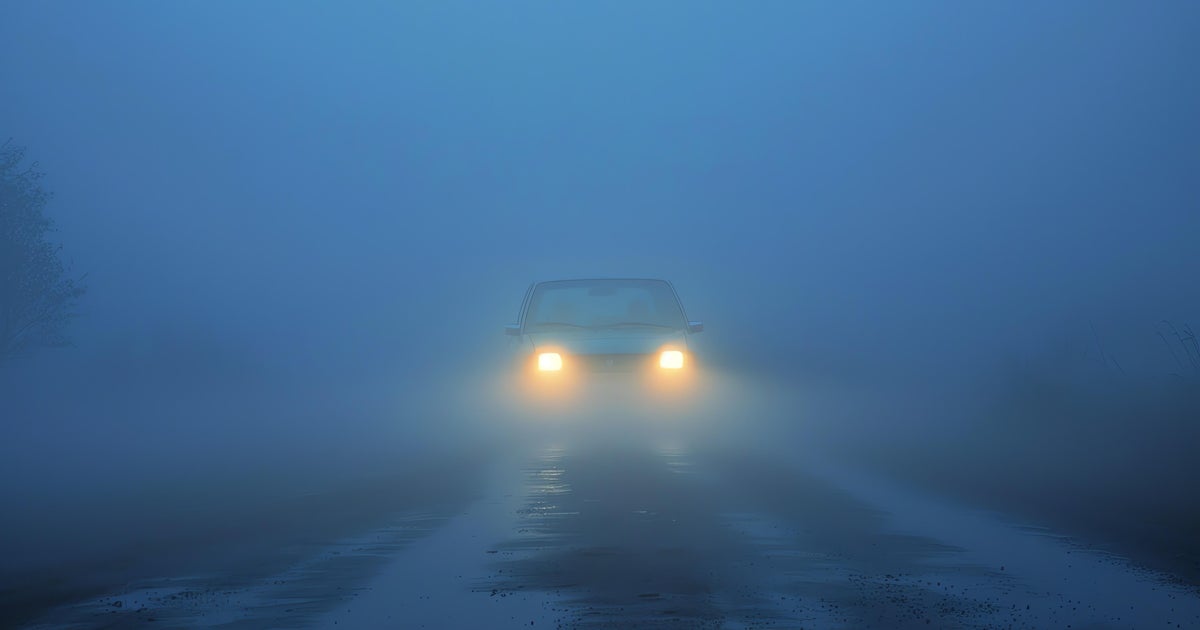We asked a former CDC director about the coronavirus vaccine. Here's what he said
The Food and Drug Administration has approved the emergency use of Pfizer's COVID-19 vaccine, kicking off a massive nationwide operation to get nearly 3 million doses of the vaccine to hospitals and drug stores across the country.
But questions still remain over just how vaccine distribution will exactly play out, who should be among the first to receive an injection and how public messaging plays a critical role in establishing trust in the vaccination process.
Here's a look at our Q&A with Dr. Richard Besser, former acting CDC director and president of the Robert Wood Johnson Foundation.
This week the FDA's advisory board approved for emergency use the COVID vaccine, and the FDA has since approved it. What should we expect the next few days to look like in terms of getting an injection to those who need it most?
The Emergency Use Authorization for Pfizer's vaccine is a tremendous public health milestone. We have never developed a vaccine so quickly, and as the FDA's independent advisory board concluded, it is both effective and safe for most adults. The FDA's process was transparent and thorough, and we should all be grateful to the scientists who made this achievement possible.
Over the coming days and weeks, the initial quantities of the vaccine will be delivered to states, territories, and tribal nations, and then onward to frontline healthcare workers and those who live and work in long-term care facilities such as nursing homes. The CDC's Advisory Committee on Immunization Practices (ACIP) — a nonpartisan, independent Federal Advisory Committee that includes some of the world's foremost medical and public health experts — recommended that those groups should receive the vaccine first.
Now it is up to states to implement those recommendations to the best of their ability, with state and local public health departments being critical partners in that endeavor. It will be a massive undertaking and one that would benefit from additional federal funding to ensure vaccines are distributed and delivered as quickly and as safely as possible.
Ongoing monitoring of the vaccine will also be critical and the FDA has required that Pfizer submit periodic safety reports that include analyses of any adverse experiences and any actions taken by the company in response to those experiences. For most vaccines, we collect years' worth of efficacy and safety data before they are licensed for use; right now, we have a little more than two months' worth for the Pfizer vaccine.
To reiterate, we can trust the recommendations of the FDA's independent advisory board that this vaccine is remarkably safe and effective. But we will also want to ensure that our understanding of safety and effectiveness is regularly updated and informed by the latest research to allay people's fears and maximize the vaccine's potential.
Former Presidents Obama, Bush and Clinton have pledged to get vaccinated publicly to increase public confidence — a promise echoed by President-elect Biden, Vice President-elect Kamala Harris and Dr. Fauci. What would you tell Americans who are hesitant?
I am encouraged that these national leaders will do their part to lift up science and promote public health guidance. It is incredibly helpful when national leaders model the behavior they would like to see. When I was acting director of the CDC at the start of the H1N1 pandemic in 2009, our nation's political leaders followed and promoted public health guidance. That played an enormous role in saving lives and protecting people's health.
I am recommending that my parents, who are both 90, get the vaccine. When my age group gets access, I will roll up my sleeve and get vaccinated as well.
But to truly overcome widespread hesitancy, local engagement is critical. Public health departments must work with trusted community leaders to understand and address concerns among those who are hesitant about getting vaccinated. Many people of color have been mistreated by the healthcare system and there is a long history of Black Americans being used for experimentation by public health. It is quite natural and appropriate to have questions and concerns about a vaccine that was developed in record time and these legitimate questions must be addressed respectfully. Listening, followed by thoughtful action in partnership with those concerned communities, can reduce hesitancy and encourage more Americans to get vaccinated when their groups are called.
I expect that over time, as we gain more experience with the vaccine and as people start to know friends and family members who have been vaccinated, demand will increase. As local demand increases, it is important that public health has done all it can to remove barriers to vaccination, be they financial or logistical.
Which groups should be targeted early for vaccination in order to yield the greatest impact on reducing new cases of COVID-19? We know front-line workers are first in line, but how should racial disparities and comorbidities play into states roll out plans?
From the very beginning, COVID-19 has impacted some populations more severely than others. Black Americans, Hispanic Americans and Native Americans have all disproportionately suffered the health and economic consequences of this pandemic. This virus has exposed an uncomfortable truth about life in America: people's ability to keep themselves and their families healthy is to a large degree determined by the color of their skin, where they live and how much money they have. That is simply unacceptable.
The biggest factor driving this disparity is a difference in the risk of exposure. A greater proportion of people of color work in front-line jobs in health care, food service and production, and transportation. These jobs cannot be done remotely and they may lack financial resources to be able to stay home if ill or exposed. As a result, to the degree states are able to follow ACIP's recommendations, we should see the initial vaccine rollout helping those populations the most. But as we know, vaccine hesitancy is real and is greater among people of color. Building capacity to vaccinate and building trust must go hand in hand.
President-elect Joe Biden predicts we could lose another 250,000 lives to this virus between now and January because "people are not paying attention." The current CDC director predicts the death toll could reach 450,000 by February. What's missing from public health messaging right now?
We are currently losing thousands of lives every day in America. It is shocking and devastating, but it is also preventable — if we do the right thing. Public health leaders need to be clear about their recommendations and that everyone has a role to play to keep themselves and their loved ones safe, but we need our political leaders to be conveying the same message. Without that unity of message and without political leaders modeling the behaviors we need everyone to follow, we will continue to see a divided nation in which some feel we are doing too much and others feel we are not doing enough. To get through this extremely difficult winter, each of us must recommit to the proven public health measures that can reduce the spread of the virus — wearing a mask, social distancing, washing hands and staying home when you're sick.
While the potential for vaccines to change the course of this pandemic is real and exciting, the reality is they are not a magic cure and they will be of little help this winter. For the vast majority of Americans, vaccines are several months away. What we do now will determine whether tens of thousands of people make it to spring.
Just as importantly, we need Congress to finally step up and help those who have been hit the hardest. Vaccines are months away for most, but federal funding and support passed in March ended in large part during the summer and what remains will be expiring in days. Congress must act now to put money in people's pockets, protect people from losing their homes through eviction and foreclosure, help schools reopen and stay open safely, and ensure people can take time off of work if they or loved ones are sick without fear of losing a job. States need federal dollars to be able respond effectively to the cases that are skyrocketing as well as to be able to effectively deliver vaccines, and small businesses need support so that if they must close in the interest of the common good, they are able to support their workers and will be around to reopen when it is safe to do so. Economic support from Congress needs to be an integral part of our public health response.
Should those who get vaccinated continue to practice mask-wearing and other COVID mitigation?
It is essential that everyone wears a mask regardless of whether they have received a vaccine. We do not yet know whether vaccination will prevent someone from spreading the virus to others. Until that is known, we must encourage everyone to wear a mask when indoors or when outdoors and not able to keep six feet apart from others. Wearing masks must still be a part of our collective daily routine. Doing so can not only protect your health, but the health of your family, friends, and neighbors.



